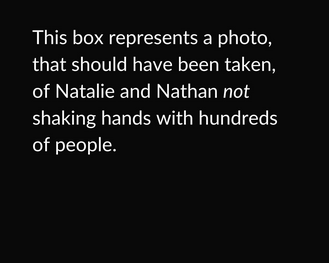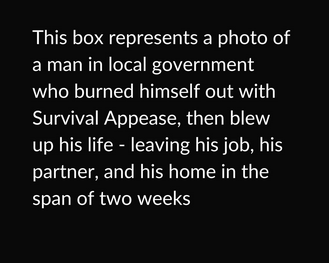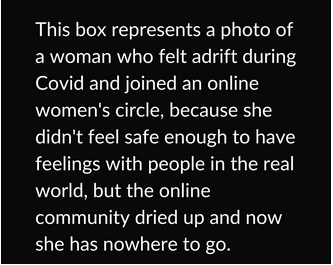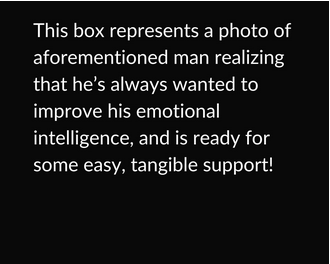Is It Good Business To Be Yourself?
We hope this finds you well and in a moment of ease.
Mind if we ask you a pretty personal question...?
(If you do, you might want to skip down a bit...)
How often are you being yourself?
Have you ever wondered what the risks and benefits are for doing so?
(Asking for a friend. Haha)
Last week, our town hosted the Big Sky International Documentary Film Festival. It's amazing. We have participated in one way or another every year for over a decade.
This year we decided to be major grown ups and sponsor the event itself!
- We made a pretty ad for the program that was also blown up on the big screen.
- We got official sponsor passes and vip access to all the events and parties.
- And being the majorly grown up business owners that we are, and following conventional "business wisdom", we went to as many of the events as we could to "network" with like-minded community.
We used all of the tools we teach to show up fully grounded, regulated, and energetically attractive. Again, conventional "business wisdom" would have us shaking hands with 50-100 people in a night, sharing about the amazing work we do, and giving them all an easy way to follow up.
But... we didn't follow conventional "business wisdom".
Because, as it turns out, we can only ever be ourselves.
In fact we are so much ourselves and not in alignment with most conventional "business wisdom" that:
We didn't take even a single photo.
We shook around 15 hands – tops.
We had deep, long, meaningful conversations with a few people, instead of networking.
When asked what we do, we'd say:
We are founders of the Center for Emotional Education. And for the last 17 years now, we've been helping successful people around the world to re-wire their brains to be better at feelings, so they can move from emotional overwhelm to Emotional Sovereignty, and finally have the lives they really want.
And then they'd tell us their story.
When asked what we would recommend for them, we shared an offering from our menu that made sense for their particular circumstances.
Dear EQ, What do I do? - for a monthly low-investment way to begin re-wiring how their brain relates to feelings.
The Wade-In - for a taste of personalized one-to-one coaching toward re-wiring some particular aspect of their current programming.
The Snuggle Class - for learning concepts and tools to re-wire the nervous system for intimacy.
NeuroEmotional Coach Training - for learning how to support your own clients to re-wire, while re-wiring to better care for yourself.
Emotional Sovereignty School - for re-wiring to be better at nurturing and healing oneself!
The Real-Life Magic Retreat - for a deluxe, pampered form of collaborative re-wiring that ripples outward into all parts of life, well after the retreat is over (No link yet for this, we're still deciding between St Croix or Costa Rica!)
After these events we'd look at each other and high-five because we were:
100% ourselves
100% authentic
100% regulated
100% in connection with the people we met
But we also wondered:
Did we just "do good business"?
Or, as conventional wisdom would tell us, did we just do no business?
What do you think?
Are you able to be yourself when you want to?
What beliefs, or "conventional wisdom" get in the way of your regulation and authenticity?
Is there ever a good reason to go along with conventional rules of behavior?
We'd love to know what you think!
Much love,
Natalie and Nathan
































